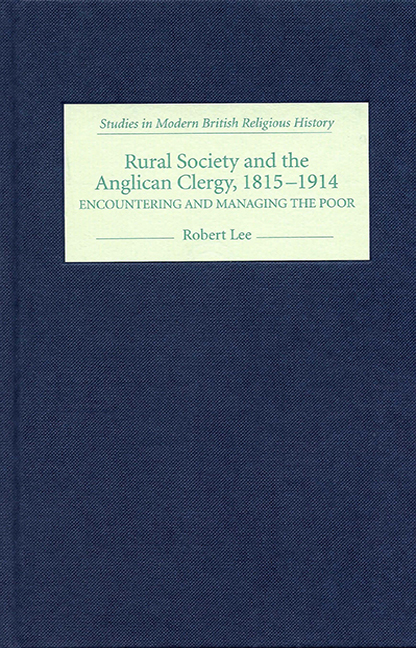Book contents
- Frontmatter
- Contenst
- List of illustrations
- Preface
- List of abbreviations
- Introduction
- Part I Encountering the Poor
- 1 Tithes and ‘Swing’: Encountering unrest
- 2 Restoration: Encounters with popular culture
- 3 Ranters and radicals: Encountering social, religious and political dissent
- Part II Managing the Poor
- Conclusion
- Bibliography
- Index
2 - Restoration: Encounters with popular culture
from Part I - Encountering the Poor
Published online by Cambridge University Press: 11 May 2017
- Frontmatter
- Contenst
- List of illustrations
- Preface
- List of abbreviations
- Introduction
- Part I Encountering the Poor
- 1 Tithes and ‘Swing’: Encountering unrest
- 2 Restoration: Encounters with popular culture
- 3 Ranters and radicals: Encountering social, religious and political dissent
- Part II Managing the Poor
- Conclusion
- Bibliography
- Index
Summary
Introduction
No clergyman should be allowed to accept a living the climate of which he knows would be uncongenial. The neglect of so many of the clergy … is one cause of the … demoralisation of the lower classes and … the rapid progress of the Dissenters.
To many new incumbents, the dislocation from Oxbridge cloister to village green came as a considerable culture shock. Not only was it difficult for them to settle personally, they also faced a problem that transcended issues of religious belief and pastoral care. Among the forces at work around them was the impetus of agricultural improvement, which carried with it an inherent threat to the belief-systems and customs of the labouring poor. Increasingly, rational and scientific approaches to farming had begun to undermine belief in what Alun Howkins has described as ‘a quasi-magical intervention in the process of growth and fertility’.
Intertwined with traditional ways of working were traditional ways of thinking and doing. This meant that the rural economy rested on twin pillars of popular culture and popular custom, and had at its heart an ancient dialogue of rights and responsibilities from which society took much of its sense of cohesion. Furthermore, nineteenth-century popular culture had a clear political dimension. E. P. Thompson has described it as a ‘plebeian culture’, an important weapon in the arsenal of the poor: ‘it is a defence against the intrusions of gentry or clergy [and] it consolidates those customs which serve [the poor's] own interests’. And yet it was not only the value-systems of elites that it challenged, for ‘it was increasingly viewed by socialists as dulling the senses of the proletariat and as a cataract preventing the perception of the reality of exploitation’.
Strikingly, however, after a half-century during which so many interest groups seemed to be working to secure its demise, the decline of popular culture suddenly became a cause for anxiety and regret. The antiquarian movement, with clergymen prominent, began to prize old superstitions, customs and dialects, seeing in them the vanishing core of a type of knowledge that was ‘other’ and valuable. As the Rev. William Marcon wrote, in the seventy-sixth year of his association with Edgefield, ‘ignorant [the people] are not, but very full of knowledge of such things as they [are] familiar with and I [am] not’.
- Type
- Chapter
- Information
- Rural Society and the Anglican Clergy, 1815–1914Encountering and Managing the Poor, pp. 30 - 55Publisher: Boydell & BrewerPrint publication year: 2006



